Avoiding The 5 Most Costly Recruitment Mistakes
Recruitment is arguably the most impactful and important function a business can undertake. When done well, a good hiring decision ensures that the right talent is brought into the business, enhancing productivity and contributing to a positive workplace culture. This alignment has positive short and longer term benefits including reducing turnover and boosting long-term team and business success.
However, when recruitment is not given appropriate dedication, or inadequate processes are used, it can have a devastating effect on the business. These deficiencies often lead to a protracted recruitment timeline, causing businesses to appoint the 'least worst' candidate and hope the red flags don't transpire into the performance, productivity and cultural impacts that they inevitably do.
In this article, we'll explore the top five mistakes employers make when recruiting and provide actionable tips on how to avoid them.
Recruitment Mistake #1 - Lack of a Clear Job Description
One of the most common mistakes employers make is not developing a clear and detailed job description. This oversight can lead to a mismatch between the employer’s expectations and the candidate’s understanding of the role. When job descriptions are vague or incomplete, it’s challenging to attract the right candidates, and those who do apply may not fully understand what the job entails.
How to Avoid It:
Start by clearly defining the role. Engage with team members who will work closely with the new hire to understand the essential functions and skills required. Outline the key responsibilities, necessary qualifications, preferred experience, and any other relevant details. Be specific about what success looks like in the role and how it aligns with the company's goals. A well-crafted job description attracts the right candidates and sets clear expectations from the start.
Remember, a vacant role allows you to explore the current and future needs of the business and be specific about what you need from the role.
Recruitment Mistake #2 - Overlooking Cultural Fit
Focusing solely on skills and experience without considering cultural fit can be detrimental. While a candidate may have the right qualifications on paper, they might not thrive in your company's environment. Recruiting for cultural fit and alignment to values-based behaviours is crucial because it affects how well a new hire will integrate with the team, embrace your company’s values, and contribute to long-term success.
How to Avoid It:
“Hire for Behaviours. Train the Skills”. We say it to clients every time we facilitate a recruitment process for them. During the interview process, assess cultural fit by asking questions that reveal the candidate's values, work style, and interpersonal skills. For example, ask about past experiences working in different team dynamics or how they handle conflicts.
The best way to predict future behaviours is to understand past recent behaviours. Asking competency-based questions, requiring candidates to “describe a time when…” will allow you to understand how they have behaved in certain situations in the past so you can best predict how they will handle situations in the future.
Additionally, involve multiple team members in the interview process to get a broader perspective on whether the candidate will align with your company’s culture. Remember, cultural fit doesn't mean hiring people who are all the same but those who can thrive in your specific environment.
Recruitment Mistake #3 - Rushing the Hiring Process
In a competitive job market, rushing the recruitment process to fill a position is tempting. However, this can lead to poor decision-making, overlooking red flags, and ultimately, hiring the wrong person. A rushed process often results in inadequate screening, insufficient interviews, and missed opportunities to thoroughly assess the candidate’s fit.
A hasty process also means the candidate does not have time to understand the role properly and appreciate the business and its culture, possibly resulting in the new hire’s expectations not being met, which can ultimately lead to them resigning.
How to Avoid It:
“Hire slowly, fire fast.” Take the time to implement a structured and deliberate hiring process. This includes developing competency-based interview guides, multiple rounds of interviews, utilising panel interviewing, skills and/or psychometric assessments and thorough reference checks. Create a timeline that allows for careful consideration of each candidate while still maintaining momentum.
If the position is critical and you feel pressure to fill it quickly, consider hiring a temporary employee or contractor to cover the role until the right long-term candidate is found. Or maybe there is an opportunity for someone internally to take on some higher duties, which also acts as a development opportunity for them.
Recruitment Mistake #4 - Failing to Involve the Right People in the Hiring Process
Another common mistake is excluding key internal stakeholders from the recruitment process. Sometimes, hiring decisions are made by a small group of individuals who may not fully understand the day-to-day demands of the role. This can result in hiring someone who is not well-suited for the position or who doesn’t have the support and endorsement of the broader team.
How to Avoid It:
Involve all relevant stakeholders in the recruitment process, including team members who will work closely with the new hire and those in leadership positions. This ensures that the candidate is evaluated from multiple perspectives, increasing the likelihood of a successful hire. Additionally, involving the team can help with onboarding, as they’ll be more invested in helping the new hire succeed.
Having HR as part of the interview process is also important. HR can provide expertise in the process, as well as add another perspective around cultural and team fit.
Recruitment Mistake #5 - Neglecting Employer Branding
In today’s competitive job market, neglecting employer branding is a significant oversight. Employer branding refers to the perception of your company as a place to work. You need to ‘sell’ the opportunity to potential candidates and have a platform to share what it means to work in your business.
If your company has a poor reputation or lacks visibility in a competitive market, you may struggle to attract top talent, even if the role itself is attractive.
How to Avoid It:
Invest in building a strong employer brand that showcases your company’s culture, values, and benefits. Establishing your Employment Value Proposition (EVP) means you can clearly articulate why a new person would want to join the team and what they get in return.
This can be communicated through various channels, including on your website, social media, employee testimonials, and company or industry blogs. Highlight what makes your company unique, such as career development opportunities, work-life balance, or a commitment to diversity and inclusion.
Additionally, ensure that the candidate experience is positive throughout the recruitment process, as negative PR can significantly impact your employer brand.
Dealing With Recruitment Complexity
Recruitment is a complex process that requires careful planning and execution. By avoiding these common mistakes—lack of role clarity, overlooking cultural fit, rushing the hiring process, failing to involve the right people, and neglecting your EVP—you can improve your opportunity of attracting and retaining top talent. Remember, the goal is not just to fill a position, but to find the right person who will thrive in your organisation and contribute to its success. It’s all about finding the right person for the right role at the right time.
A successful recruitment strategy involves clearly understanding the role, a deliberate and inclusive hiring process, and a strong employer brand. You can build a cohesive, supportive and productive team by taking the time to get these elements right.
If you want to have a chat about your recruitment strategy or people challenges, book a call with Amanda to explore how Evans Faull can support you and your business.
Share this
You May Also Like
These Related Stories

Creating a Healthy, Safe and Productive Work Environment

5 Steps Towards Preventing Employee Underperformance




No Comments Yet
Let us know what you think